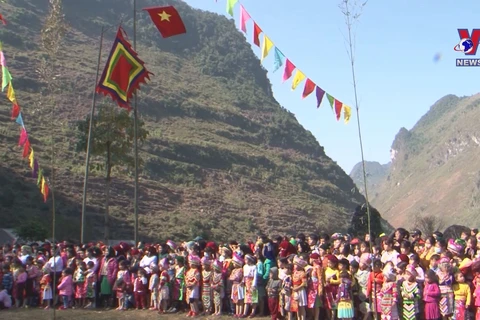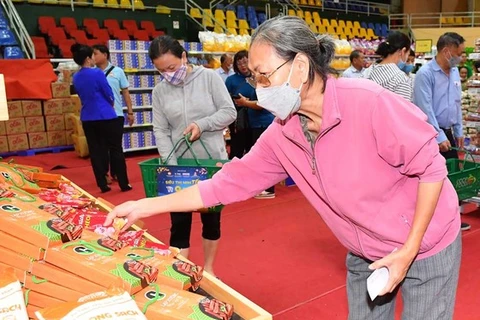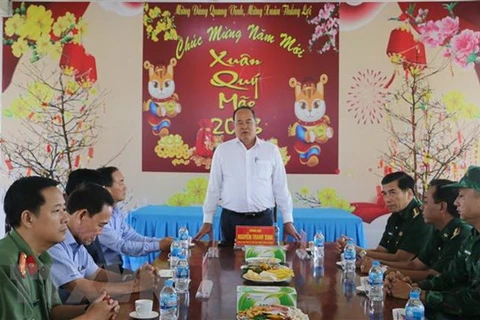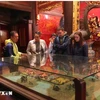Hanoi (VNA) – The Vietnam Red Cross societies at all levels are striving to support 1 million poor people and those from vulnerable groups with a total amount of 600 billion VND (25.5 million USD) in the upcoming Lunar New Year (Tet) – the biggest festival in a year of Vietnamese people.
The Vietnam Red Cross Society (VRC) Central Committee said that as of January 6, it had allocated 33 billion VND (1.4 million USD) in cash and in kind to provinces and cities across the nation to help them carry out activities of the “Tet of Mercy” Movement 2023.
President of the VRC Central Committee Bui Thi Hoa said that the "Tet of Mercy" Movement is inherited from the "Tet for the Poor and Agent Orange Victims" Movement launched by the organisation in 1999 in order to continue mobilising public donations to provide material and spiritual support for the poor, disadvantaged people, and those from vulnerable groups to enjoy a warm Lunar New Year.
Various activities under the movement will be held nationwide to January 16 (the 25th day of the last lunar month)./.
The Vietnam Red Cross Society (VRC) Central Committee said that as of January 6, it had allocated 33 billion VND (1.4 million USD) in cash and in kind to provinces and cities across the nation to help them carry out activities of the “Tet of Mercy” Movement 2023.
President of the VRC Central Committee Bui Thi Hoa said that the "Tet of Mercy" Movement is inherited from the "Tet for the Poor and Agent Orange Victims" Movement launched by the organisation in 1999 in order to continue mobilising public donations to provide material and spiritual support for the poor, disadvantaged people, and those from vulnerable groups to enjoy a warm Lunar New Year.
Various activities under the movement will be held nationwide to January 16 (the 25th day of the last lunar month)./.
VNA
























